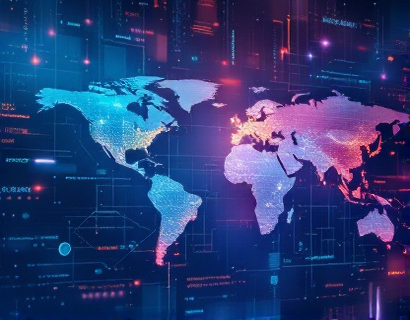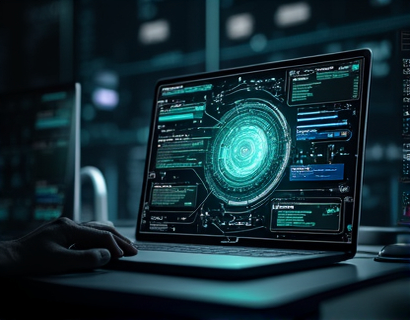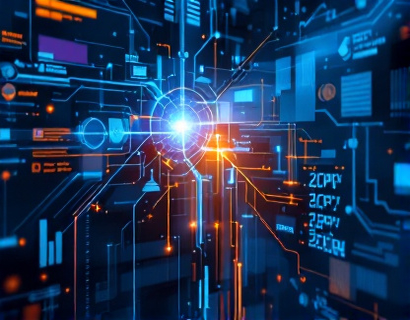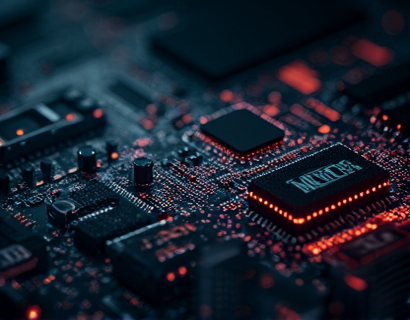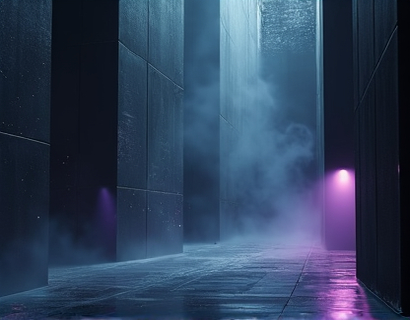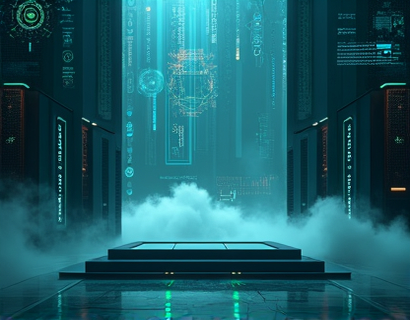Crafting Secure and Personalized Online Memorials with AI and Blockchain Technology
The digital age has transformed numerous aspects of our lives, including how we remember and honor our loved ones who have passed away. Traditional methods of creating memorials, such as physical headstones or photo albums, are being complemented by innovative online solutions that leverage advanced technologies like Artificial Intelligence (AI) and Blockchain. This article explores how these cutting-edge technologies can be combined to create secure, personalized, and lasting online tributes for those we cherish.
Understanding the Need for Digital Memorials
The loss of a loved one is one of life's most profound experiences, leaving a void that cannot be easily filled. In the past, people relied on physical memorials to keep the memory of their dear ones alive. However, these traditional methods have limitations, such as physical decay, accessibility issues, and the inability to incorporate dynamic elements that reflect the personality of the deceased. Online memorials offer a solution to these challenges, providing a platform that can be accessed from anywhere, updated easily, and enriched with multimedia content.
AI in Memorial Creation
Artificial Intelligence plays a pivotal role in enhancing the personalization and interactivity of online memorials. AI algorithms can analyze vast amounts of data, including social media profiles, personal documents, and user inputs, to curate a comprehensive and authentic representation of the deceased. Here are some ways AI contributes to the memorial creation process:
- Content Curation: AI can sift through a person's digital footprint to select the most meaningful posts, photos, and videos, creating a timeline that narrates their life story.
- Personalized Messaging: Using natural language processing, AI can generate heartfelt messages or quotes that resonate with the personality and values of the deceased, offering comfort to visitors.
- Interactive Features: AI-powered chatbots can engage visitors, answer questions about the deceased, and even provide emotional support, making the memorial a more interactive and supportive space.
Blockchain for Security and Immutability
Blockchain technology is renowned for its ability to provide secure, transparent, and immutable records. In the context of online memorials, blockchain ensures that the content and data associated with the memorial are protected from tampering and loss. Here’s how blockchain enhances the security and integrity of digital tributes:
- Data Integrity: Once data is recorded on the blockchain, it cannot be altered or deleted, ensuring that the memorial remains a true and unchanging reflection of the deceased's life.
- Privacy Control: Blockchain allows users to manage access permissions with precision, ensuring that only authorized individuals can view or contribute to the memorial.
- Decentralization: By storing data across a network of computers rather than a central server, blockchain reduces the risk of data breaches and loss, providing peace of mind for families and loved ones.
Combining AI and Blockchain for Enhanced Memorials
The true power of integrating AI and blockchain in online memorials lies in their synergy. AI can manage and enrich the content, while blockchain ensures the security and permanence of that content. This combination offers a robust solution for creating memorials that are both deeply personal and securely preserved. Here’s a closer look at how these technologies work together:
First, AI processes and curates the content, creating a dynamic and engaging narrative. This content is then securely stored on a blockchain, ensuring that it remains intact and accessible only to those who have been granted permission. The blockchain also facilitates a transparent and trustworthy environment, where the authenticity of the memorial is guaranteed.
Moreover, the use of smart contracts on the blockchain can automate certain aspects of memorial management, such as setting up recurring updates or managing contributions from multiple family members. This not only simplifies the process but also ensures that the memorial remains a living tribute that evolves over time.
Benefits of AI and Blockchain Memorials
The integration of AI and blockchain in online memorials offers numerous benefits, making these digital tributes a compelling choice for those seeking to honor their loved ones:
- Personalization: AI ensures that each memorial is tailored to the individual, reflecting their unique life story and personality.
- Security: Blockchain technology provides a secure and tamper-proof environment, protecting the memorial from unauthorized access and data loss.
- Accessibility: Online memorials can be accessed from anywhere in the world, allowing family and friends to pay their respects regardless of their location.
- Community Support: The interactive features powered by AI can foster a sense of community among those who knew the deceased, providing mutual support and shared memories.
Case Studies and Real-World Applications
Several platforms are already leveraging AI and blockchain to create innovative memorial solutions. One such example is a platform that uses AI to create personalized video tributes, combining footage and photos with AI-generated narratives. These videos are then stored on a blockchain to ensure their longevity and security. Another platform offers a blockchain-based ledger for storing and managing digital assets, such as letters and mementos, which can be accessed by future generations.
These real-world applications demonstrate the potential of AI and blockchain in transforming the way we create and preserve memorials. They provide a glimpse into a future where digital tributes are not only personal and meaningful but also secure and enduring.
Challenges and Considerations
While the combination of AI and blockchain offers significant advantages, there are also challenges and considerations to keep in mind:
- Technical Complexity: Implementing these technologies requires a certain level of technical expertise, which may be a barrier for some users.
- User Adoption: Encouraging widespread adoption of these new memorial formats may take time as people become more comfortable with digital tributes.
- Regulatory Compliance: Ensuring that these platforms comply with data protection and privacy laws is crucial, especially when dealing with sensitive personal information.
Addressing these challenges through user-friendly design, education, and robust compliance measures can help overcome barriers and promote the adoption of AI and blockchain memorials.
The Future of Digital Memorials
As AI and blockchain technologies continue to evolve, the potential for enhancing online memorials is vast. Future developments may include:
- Enhanced AI Personalization: More sophisticated AI algorithms could create even more nuanced and emotionally resonant tributes.
- Interoperability: Standards for interoperability could allow memorials to seamlessly integrate with other digital platforms and services.
- Virtual Reality Experiences: Combining VR with AI and blockchain could create immersive memorial experiences that transport visitors to meaningful locations or recreate special moments.
These advancements promise to make digital memorials even more powerful tools for remembrance and healing, offering new ways to connect with the past and honor those who have passed.
In conclusion, the integration of AI and blockchain in creating online memorials represents a significant leap forward in how we remember and celebrate the lives of our loved ones. By combining the personalization of AI with the security and permanence of blockchain, these platforms offer a unique and meaningful way to create lasting tributes that transcend time and technology.










